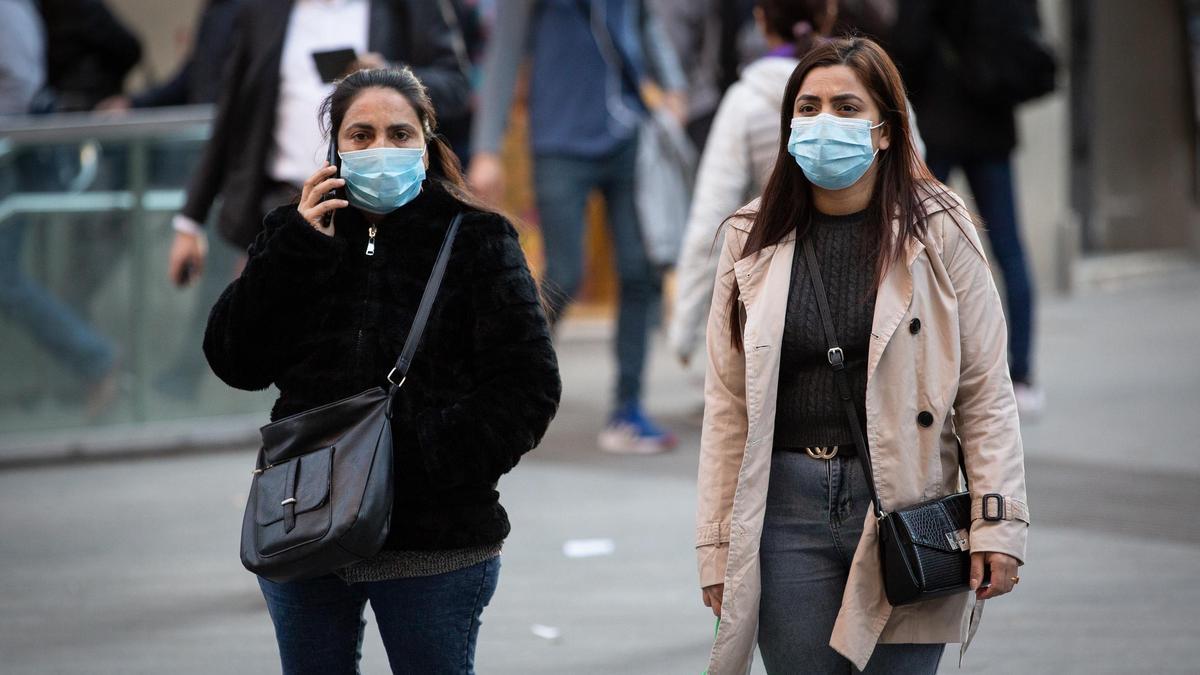He stress produced by the lockdown, y not the covid infection, he had a impact on menstrual cycles of women. The lockdown, which took place from March to May 2020, brought about changes that consisted of the absence of menstruation, in it delay of the same and in heavy bleeding. This is confirmed by the study ‘Effects of SARS-Covid-19 confinement on menstrual patterns’, led by two gynecologists from Hospital de la Santa Creu i Sant Pau de Barcelona and which collected, in an online survey, the Observations of women about their cycles. Until now they had been made research on how the vaccine and even the coronavirus had affected by the women’s rules, but this is the first study which sought to determine whether home confinement had also altered the cycles.
In this report, published in the ‘Clinical Medicine’ magazine, A total of 1,000 people participated 6,440 women, aged between 15 and 55, from all over Spain (this is the largest sample of menstruating women published to date), who did not contract Covid and who responded to an extensive survey via WhatsApp. From this sample Women taking hormonal contraceptives were excluded, since these drugs regulate the menstrual cycle. “We wanted to know to what extent being in isolation influenced menstrual changes. There were two groups of women: those who stayed at home isolated and those who went out because they were part of the essential services, such as health workers or supermarket cashiers,” he explains. Joaquim Calaf, gynecologist at Sant Pau and one of the authors of the study. “On the contrary, we saw that the Covid infection did not alter menstrual cycles,” adds this doctor.
“Doctors saw that women who experienced the most stress during confinement were the ones who experienced the most changes in their cycle”
Doctors saw how women who They lived with more stress during confinement were the ones that experienced the most changes in the cycle. “For example, two ICU nurses in a situation of great tension or two bus drivers or supermarket cashiers, Even though they are exposed to the same stressors, they present menstrual alterations depending on how they experienced that situation,” explains Calaf. Thus, the work itself was not as relevant as the “emotional component” of the same. “It was not so much about being very isolated or very exploited by work, but how the situation affected you and the fear of getting infected. Sometimes it was not fear of getting infected themselves, but of come home and contaminate a family member,” adds this gynecologist.
The researchers asked these women what kind of stress did they feel: whether it is fear of losing their job, of becoming infected themselves, of infecting a family member, or anxiety about confinement. “We saw that The higher these levels were, the more changes occurred in menstrual cycles, which basically consisted of the absence or delay of menstruation or in heavy bleeding,” says the gynecologist from Sant Pau Josep Perelló
“Delay, absence or heavy bleeding were the most frequent changes”
Decrease in sexual activity
The doctors gathered information about the activities of these women during confinement, their sexual activity, their perceptions about their emotional state, los changes in your menstrual patterns and the daily impact. For 50.1% of those interviewed, their overall quality of life worsened during home confinement, while 41.3% remained more or less the same and 8.7% reported an improvement. sexual activity During confinement, it decreased in 49.8% of respondents, remained unchanged in 40.7% and increased in 9.5%.
The researchers did not find “statistically significant differences” in menstrual changes in women taking non-hormonal contraceptives When these changes were assessed according to duration and features of isolation, the perception of exposure to covid and the employment situation. But they did find “statistically significant differences” in the regularity, duration and quantity of menstruation related to the “intensity of changes in the emotional state due to the stressors of confinement.”
Stress and menstrual cycle
The study concludes, in this way, that the changes in emotional state, but not the duration and intensity of isolation or exposure to the disease significantly influenced the menstrual disorders during the covid lockdown. Thus, the most significant predictor of a change in the menstrual pattern was the individual perception of anxiety, regardless of the employment status, the degree of isolation or vulnerability to the disease. Still, as the researchers themselves acknowledge, It is impossible to know how many women were affected. their menstrual cycle due to confinement. “We know that people who respond to the survey are the most sensitive to the problem. “That’s why we can’t know the total number of those affected,” admits Perelló.
This result confirms the hypothesis that menstrual disorders are very significantly related to the individual sensitivity to stress and with the emotional state of the woman, and they do not have so much to do with the gravity from the stressful situation. Not all women react identically in similar circumstances.
Subscribe to continue reading


